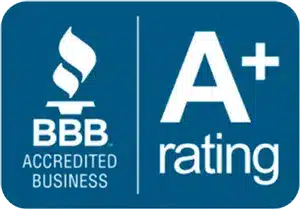Hepatitis C (also known as Hep C or HCV) is a viral infection primarily affecting the liver. Individuals with this infection usually do not show any early symptoms. That is because Hepatitis C often goes undetected. However, if untreated, Hepatitis C can lead to more severe complications, such as liver damage, liver cancer, and liver failure. Due to recent advancements in hepatitis C treatment options, early virus detection can help patients secure a viable treatment option with notable benefits and reduced side effects. For a reliable and effective Hepatitis C treatment in Moore, OK visit Equality Health or call us at (405) 761-2762.

Objectives of Hepatitis C Treatment
At Equality Health, our objectives for managing individuals with hepatitis C encompass three key aspects:
1. Eradicating HCV and achieving Sustained Virologic Response (SVR)
Our primary and immediate goal is to treat each individual with a regimen that has an exceptionally high likelihood of curing their HCV infection.
2. Enhancing HCV-related health outcomes
Following successful treatment, we aim to improve overall health outcomes, which include–
- Reducing any progression of hepatic fibrosis
- Lowering the risk of hepatic failure
- Minimizing the occurrence of hepatocellular carcinoma (HCC)
- Enhancing survival rates
- Alleviating some of the extrahepatic manifestations associated with HCV.
3. Mitigating HCV transmission
Our treatment approach also focuses on reducing the transmission of HCV. By providing treatment to individuals, we aim to significantly decrease the virus’s transmission and substantially impact the overall HCV epidemic.
4. Ensuring the Right Treatment Strategy
In terms of treatment, the current standard of care for chronic hepatitis C infection involves the use of direct-acting antiviral (DAA) medications. These drugs directly attack the Hepatitis C virus and inhibit its replication. DAA medications are highly successful and are known to effectively cure the infection in up to 98 percent of cases.
However, it is important to note that there are several types of DAA medications available for treating Hepatitis C. And at Equality Health, we personalize treatment plans to optimize the effectiveness, safety, and success of DAA medications.
The key factor we consider is the virus’ genotype and subtype. This is because different genotypes and subtypes of the virus may respond differently to specific DAAs. Additionally, the patient’s medical history, existing conditions, liver function, and potential drug interactions are considered.
How We Evaluate and Monitor Hepatitis C at Equality Health
At Equality Health, we will first conduct an initial evaluation process for Hepatitis C treatment. This includes–
- Confirming active Hepatitis C disease through viral RNA detection
- Gathering a comprehensive medical history to identify risk factors
- Assess other medical conditions or medications that may impact the treatment plan
- Assessing liver damage by measuring levels of enzymes and proteins produced by the liver
After the evaluation, most patients will either be eligible for treatment or have conditions that make treatment unsuitable. In certain cases, treatment decisions may require a personalized assessment beyond the initial examination.
Additionally, throughout your treatment journey, we will consistently monitor your progress. Regular monitoring plays a vital role in managing Hepatitis C for several reasons, which are–
- It enables us to evaluate the effectiveness of the treatment and make any necessary adjustments to the treatment plan, as not all medications work equally well for every patient.
- Monitoring helps prevent disease progression, identify complications, and enhance overall quality of life. It ensures patient safety by promptly identifying any potential hep c treatment side effects.
Antiviral Medications for Hepatitis C in Moore, OK
Direct-acting antivirals (DAAs) are currently the standard treatment for HCV infection. These Hepatitis C treatment medications directly target the hepatitis C virus (HCV), making them more precise than older treatments like interferons. Consequently, they have fewer impacts on other systems in the body, resulting in fewer side effects. Furthermore, the side effects associated with DAAs are generally only mild to moderate in severity.
The side effects associated with DAAs typically include fatigue and headaches. However, anemia, diarrhea, nausea, vomiting, and a slow heartbeat can also result in some patients.
There are three categories of DAAs used for hepatitis C treatment options:
- NS3/4 protease inhibitors
- NS5A inhibitors
- NS5B polymerase inhibitors
Most of these come in combination drugs, which means you may be able to take as little as one pill per day to treat your hepatitis C.
Once again, it’s important to note that not every drug suits everyone. Certain medications may not be appropriate for those with cirrhosis, HIV or hepatitis B co-infection, or individuals who have undergone liver transplantation. Factors such as past treatments, viral load, and overall health also contribute to determining the most suitable treatment option.
Treatment Duration and Response Rates of Hepatitis C Treatment
After getting an initial Hepatitis C testing, the duration of Hepatitis C treatment can vary depending on several factors, including the specific genotype of the virus and individual patient characteristics. However, the treatment duration generally ranges from 8 weeks to 24 weeks.
What to expect after hep C treatment? After treatment, the success of any Hepatitis C treatment is based on the evaluation of sustained virologic response (SVR). SVR refers to the absence of detectable HCV RNA in the blood 12 or 24 weeks after treatment, depending on the specific regimen used.
Achieving SVR indicates that the virus has been effectively cleared from the body, and the risk of liver damage and disease progression is reduced.
Current Hepatitis C treatment regimens, particularly those involving direct-acting antiviral (DAA) medications, have demonstrated high response rates. Upon completion of treatment, response rates refer to the proportion of patients who achieve SVR. The response rates for DAA-based regimens are generally very high, exceeding 95% in most cases. These high response rates have revolutionized Hepatitis C treatment, as they offer the potential for a cure and improved long-term outcomes for patients.
Adherence and Supportive Care: Providing Care That Counts
Medication adherence, or consistently taking the prescribed medications as instructed, is crucial for the effectiveness of Hepatitis C treatment.
Here are some strategies and tips for maintaining medication adherence during Hepatitis C treatment:
- Pill reminders: Set up reminders using phone alarms, pill reminder apps, or physical pillboxes to help you remember when to take your medication.
- Establish a routine: Incorporate taking your medication into your daily routine at a specific time, such as with a meal or before bedtime. This can help make it a habit and reduce the chances of forgetting.
- Seek support: Inform your family members, close friends, or support system about your treatment regimen. They can provide reminders and support your adherence efforts.
- Keep a medication diary: Maintain a log or calendar to track when you take your medication. This visual reminder can help you stay on track and identify any missed doses.
At Equality Health, supportive care services are vital in helping patients adhere to medication and enhancing their overall well-being when undergoing Hepatitis C treatment in Moore, Oklahoma. That is why we provide supportive care services that include the following:
- Mental health support: Dealing with a chronic condition like Hepatitis C can be emotionally challenging. We provide resources for counseling and therapy to assist individuals cope with disease-related emotions, reduce stress, and improve treatment adherence.
- Peer support groups: Sharing experiences with others makes one feel like they belong, understand, and are encouraged. We can organize peer support groups to allow individuals to share their challenges, successes, and strategies for adherence and foster a supportive environment.
- Patient education: Education about Hepatitis C and its treatment can empower individuals to take an active role in their care. This particularly includes knowledge about managing potential side effects associated with their treatment.
Treatment Outcomes and Long-term Follow-up for Hepatitis C Treatment in Moore, OK
It’s important to note that being cured of Hepatitis C does not mean individuals are completely immune to future liver problems. While achieving a cured status indicates the successful elimination of the virus, long-term care and surveillance are still necessary. This is because the liver can continue to be affected by factors such as pre-existing liver damage, alcohol consumption, obesity, and other comorbidities.
Hence, post-treatment follow-up visits are crucial in ensuring long-term liver health for individuals undergoing Hepatitis C treatment.
These visits are particularly important for the following reasons:
- Assessing treatment response and monitoring liver health
Follow-up visits are important for monitoring HCV RNA levels and liver functioning to assess treatment outcomes and identify any potential relapse.
- Detecting co-infections or comorbidities
Individuals with Hepatitis C may have other coexisting conditions such as HIV, hepatitis B, or liver cirrhosis. Post-treatment follow-up visits provide an opportunity to screen for and manage these conditions, ensuring comprehensive care and optimizing overall health outcomes.
- Providing ongoing support and education
Follow-up visits can provide ongoing support, address any concerns or questions, and offer education regarding lifestyle modifications, prevention of reinfection, and minimizing liver damage risks. This ongoing guidance promotes long-term well-being and empowers individuals to maintain their liver health actively.
Beyond follow-ups, maintaining a healthy lifestyle post-treatment is crucial for overall well-being and liver health. This includes adopting a balanced diet, exercising regularly, avoiding excessive alcohol consumption, refraining from illicit drug use, and maintaining a healthy weight.
If you would like further information on Hepatitis C treatment in Moore, Oklahoma, feel free to contact Equality Health at (405) 761-2762. We also provide services for HIV testing, HIV treatment, PrEP for HIV prevention, STD testing, and STD treatment in Moore.
Frequently Asked Questions (FAQs)
When it comes to Hepatitis C treatment, you can always count on Equality Health. We provide reliable and safe treatment procedures with the best healthcare specialists. Our services are not limited to Hepatitis C treatment only, we also provide testing and diagnosing services. Then, our providers will assist you and devise a treatment plan to get you on the road to recovery as soon as possible.
Yes! Medicaid and most insurance companies cover the treatment for Hepatitis C. But the good news is, at Equality Health, we have partnered with several insurance companies and networks to make sure that our patients are taken care of with the treatment costs. By understanding your scenario better of what you can pay for and can’t, we assist you with our partnered insurance companies.
Yes, there are Hep C medications. Direct-acting antiviral (DAA) tablets are one of the best medications available for treating Hepatitis C. They are very safe and are also highly effective in treating Hepatitis C by clearing the infection in about 90% of the affected people. The different classes of DAA medications include:
- Protease Inhibitors
- Polymerase Inhibitors
- NS5A Inhibitors
A positive antibody test result for Hepatitis C indicates that you were exposed to HCV at some point in your life. However, it does not exactly mean that the virus is currently active in your body. So, you must contact your healthcare provider to follow up with a nucleic acid test to know if you have hepatitis or not. Depending on the result of the test, your healthcare provider will let you know if you need to get treatment or not.
HIV kits are only reliable to test for HIV and not Hepatitis C. If you want to test for Hepatitis C at home, you must use an at-home Hepatitis C kit. The results of the Hepatitis C at-home tests are highly accurate and can be as accurate as other testing methods done at a hospital. However, your results may come out false only if you test the take too early after the infection or fail to use the test correctly.


